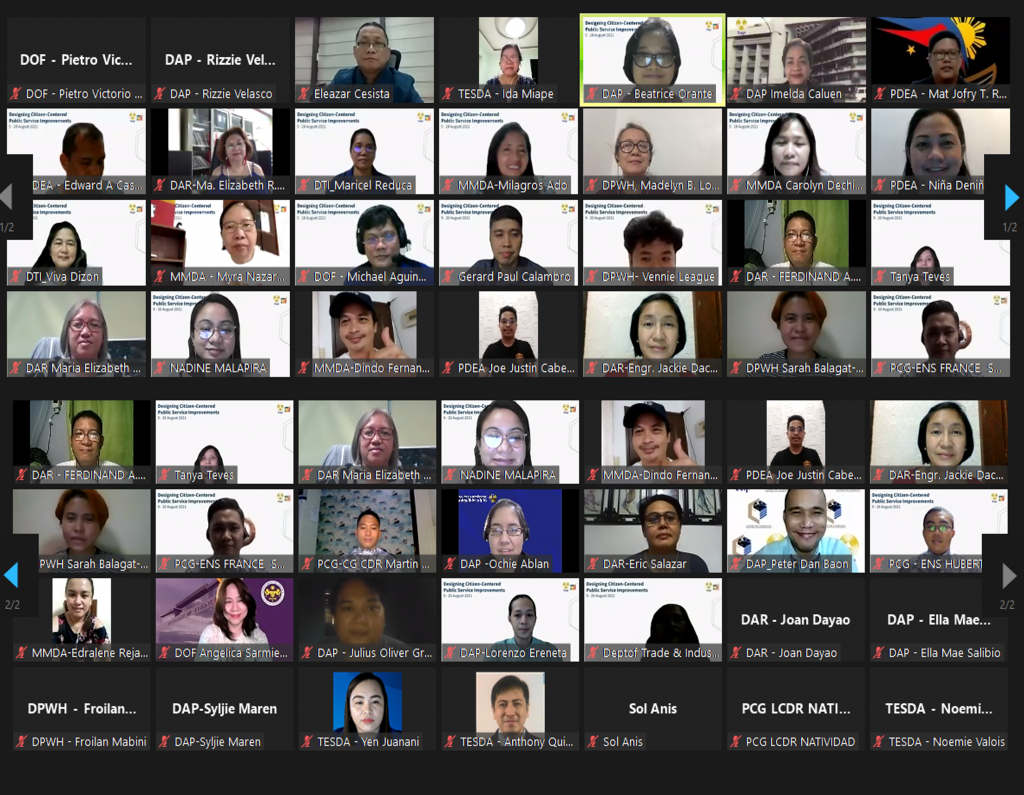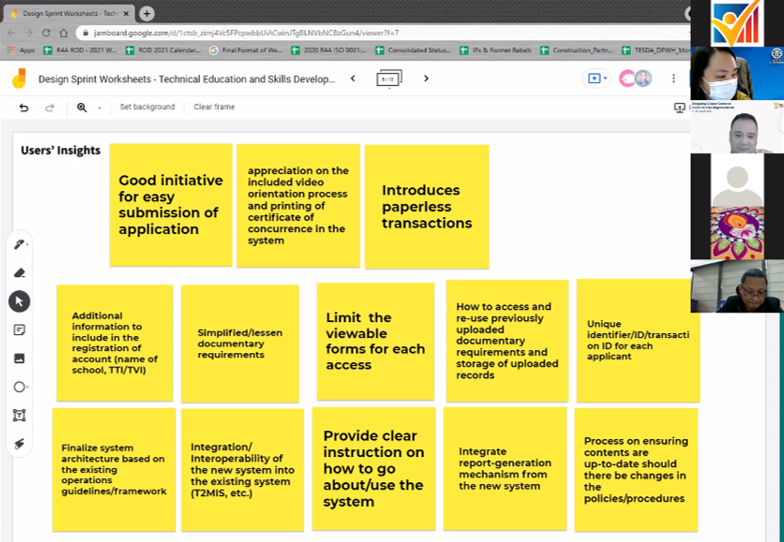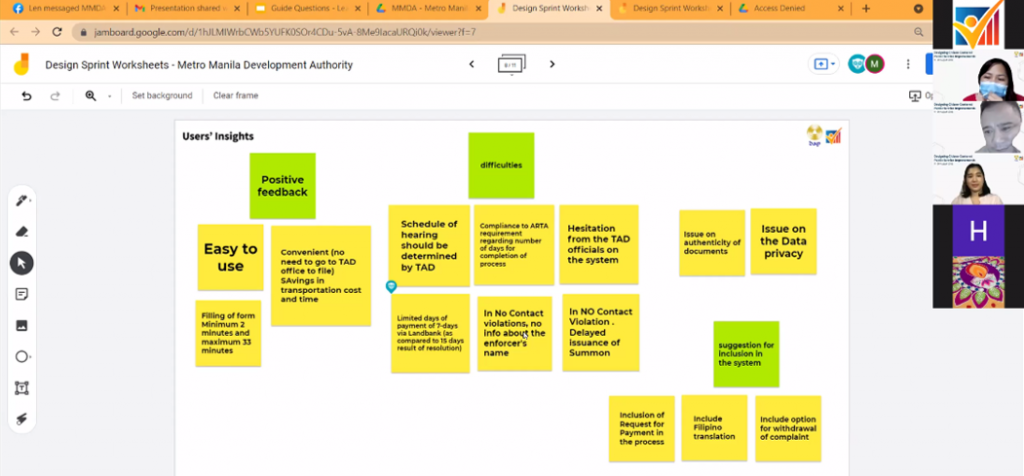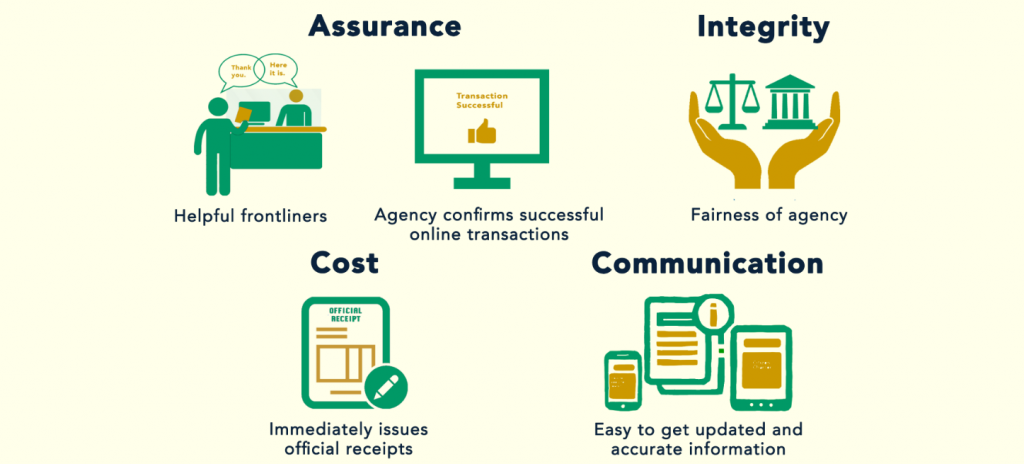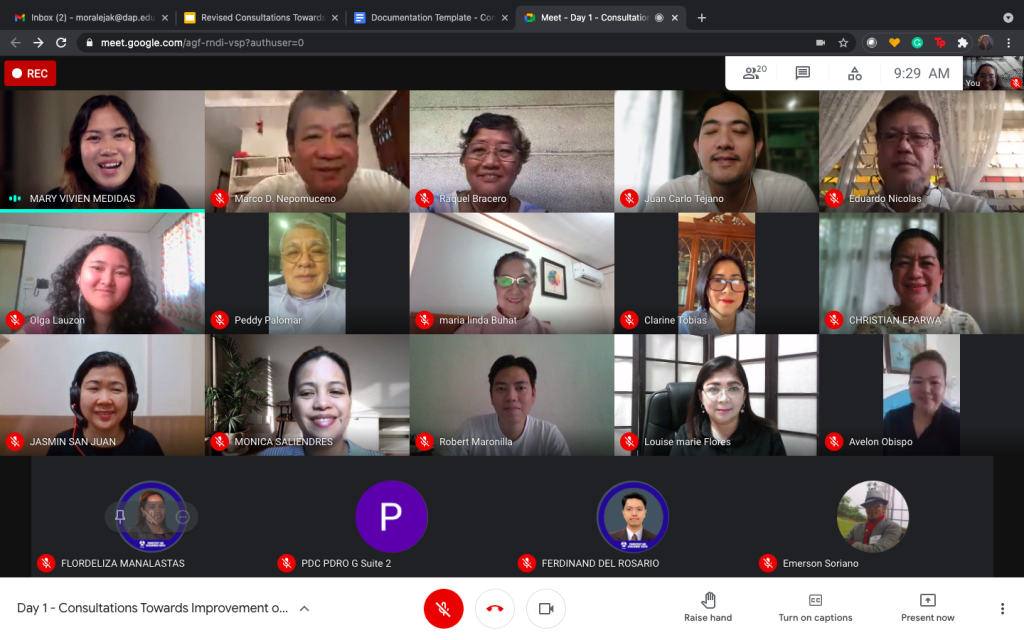Innovative thinking was the theme for the month’s Public Sector Productivity Webisodes organized by the Development Academy of the Philippines (DAP). The free webinar series entitled, Innovative Thinking for Enhancing Public Sector Productivity, was held on 15-17 September 2021. It featured innovation champions, Adrian Ramirez, Leanne Lozanes, Anita S. Gubalane, and Paul Vincent Avecilla.
Co-Creation Innovation Process in DAP practice
Day 1 was an introductory course on innovative thinking. Adrian Ramirez, project manager of the Center of Excellence on Public Sector Productivity Innovation Laboratory Program, together with Leanne Lozanes, associate project officer with the Productivity and Development Center in DAP, facilitated the interactive talk attended by over two thousand participants from various government and private agencies.
The speakers discussed fundamental concepts on innovation and ideation tools and techniques such as Revolution, Opposite thinking, Crazy 4s, and Crazy 8s, SCAMPER Technique, and Related World. They also presented the co-creation innovation process that the DAP advocates in implementing innovative projects for the public sector.
Ramirez noted the central role of empathy in the co-creation innovation process. He shared, “we try to involve the stakeholder or the end-user every step of the way. Empathy is our tool to make sure that we include them every step of the way, and I think that is the heart and soul of the co-creation innovation process.â€
Constant change calls for continuous intentional efforts to innovate and to improve present standards and practices in the government. As Ramirez explained, the needs of today’s volatile, uncertain, complex, and ambiguous (VUCA) world are indeed becoming more and more complex each day, and innovation is key to addressing them.
To conclude the episode, Lozanes shared a short quote from Steve Jobs, one of the most successful innovators of all time: “Innovation is the ability to see change as an opportunity, not a threat.†She added, “just like what we’ve experienced in the past months with the COVID-19 pandemic. Even [though] we experienced a lot of changes because of the pandemic, our government did not stop in delivering the services. We saw it as an opportunity to really improve the delivery of our services, change our approaches in the way we do things in the government, and, basically, revolutionize the way we approach things.â€
DepEd Antique Innovation Project
On Day 2 of the webinar, the education program supervisor in Science in the Division of Antique and the Division Focal Person for Special Education, Anita S. Gubalane presented about Count on US, ANITA (United Stakeholders, Activate the Nurturing Intensive Teaching amidst Adversity), a project implemented by DepEd Antique in cooperation with the DAP Center for Governance.
According to Gubalane, the project was implemented to address problems in literacy and numeracy among Grade 3 learners in Antique. It aims to maximize learning support systems for non-readers and non-numerates in the new normal. She explained, “Project COUNT on US, ANITA depicts the true bayanihan spirit wherein our stakeholders collaborate and work together for our beneficiaries.â€
In the test conducted by the Schools Division of Antique, it was found that many of the Grade 3 learners enrolled in the school year 2020 to 2021, especially from the vulnerable sectors, struggle with understanding self-learning modules due to factors such as the absence of face-to-face instruction, the inability of parents to provide learning support, and lack of access to technology. These identified factors served as the basis for the measures they carried out in the intervention, which include intensive remote teaching, the organization of a mentoring hub for parents, learners, and teachers, capacity building for teachers, a conference for the parents on their role in their children’s education, and the development of learning packages.
Gubalane proudly shared that through Count on US, ANITA, about 45 percent of the third-grade non-readers increased their reading level from non-reading to instructional level, while 56 percent increased in numeracy level. Another feat that she brought up was the replication of the literacy and numeracy project in other districts in Antique such as San Jose and Hamtic North.
OF-CORS
Digitization of government services is now becoming the new normal. Commission on Filipinos Overseas (CFO) was one of the many government offices that recently started to offer online services to make transactions easier, safer, and contactless.
The Day 3 webinar topic, entitled Digitalization of Government Services in the New Normal: Overseas Filipinos CFO Online Registration (OF-CORS), was facilitated by Paul Vincent Avecilla, senior emigrant services officer at the Commission on Filipinos Overseas (CFO).
Avecilla shared how this innovation in CFO has revolutionized their service quality for their clients. With online systems and quality management systems in place now, transactions have become way more efficient compared to before wherein they entail tedious, time-consuming steps and many documentary requirements.
Salient features of OF-CORS include online registration, online verification, online payment, online PDOS, online feedback, and a digital certificate system.
Click here to read more about OF-CORS.
Make sure you like our Facebook page at facebook.com/APOcoepsp and subscribe to our newsletter so you never miss out on the latest news, events, and knowledge about all things public-sector productivity.





